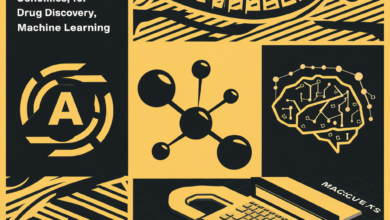Retailers must tread cautiously as they tap artificial intelligence amidst digital transformations — Retail Technology Innovation Hub

Moreover, AI can enhance communication and collaboration within retail organisations. Chatbots powered by AI can handle routine inquiries from employees, such as HR related queries or IT support requests, freeing up human resources for more complex tasks.
AI driven virtual assistants can facilitate seamless communication between different departments, ensuring that information flows efficiently throughout the organisation.
Retailers generate vast amounts of data, from sales transactions to customer interactions, which can be overwhelming to manage manually. AI powered data management systems can organise and analyse this data, uncovering valuable insights that drive informed decision-making.
For instance, AI can analyse sales data to identify trends and patterns, helping retailers anticipate customer preferences and adjust their inventory accordingly. By predicting demand more accurately, retailers can optimise inventory levels, reduce carrying costs, and minimise the risk of stockouts or overstocking.
Furthermore, AI can enhance compliance and risk management in retail operations. By analysing vast amounts of data, AI powered systems can identify potential risks, such as fraud or regulatory non- compliance, before they escalate into larger issues. This proactive approach allows retailers to mitigate risks effectively, protecting their reputation and bottom line.
One thing every retailer understands, but often struggle to implement, is that understanding customers is essential for success. With AI, retailers have gained powerful tools to transform customer analytics, marketing, and personalisation.
By harnessing the capabilities of AI, retailers can unlock valuable insights, create targeted marketing campaigns, and deliver personalised experiences that resonate with customers on a deeper level. The MarTech industry was an early adopter of machine learning and is accelerating this move into more sophisticated AI systems.
AI driven analytics revolutionise how retailers understand and segment their customer base. Traditional methods of analysing customer data often struggle to keep pace with the volume, variety, and velocity of data generated in today’s digital world.
AI powered analytics solutions, however, excel in processing vast amounts of data in real-time, uncovering hidden patterns and insights that drive strategic decision-making.
AI can streamline employee scheduling, a task that traditionally requires significant time and effort from managers
interactions across multiple channels. These insights enable retailers to segment their customer base more effectively, identifying distinct customer personas and tailoring their marketing efforts accordingly. For example, AI can identify high value customers, predict churn risks, and recommend personalised offers or promotions to drive engagement and loyalty.
Moreover, it enhances predictive analytics capabilities, enabling retailers to forecast future trends and anticipate customer needs with greater accuracy. Through historical data and external factors such as market trends and economic indicators, AI powered predictive analytics models can generate actionable insights that inform strategic planning and decision-making.
AI is revolutionising marketing in the retail industry, enabling retailers to create more targeted, personalised, and effective marketing campaigns.
Traditional marketing approaches often rely on demographic or psychographic segmentation, which may not capture the nuances of individual customer preferences and behaviours. AI powered marketing solutions, however, leverage advanced algorithms and machine learning techniques to analyse vast amounts of customer data and deliver hyper-personalised experiences.
One of the key advantages of AI in marketing is its ability to automate and optimise campaign management processes. AI powered marketing platforms can segment customers based on their preferences, behaviours, and purchase history, allowing retailers to deliver tailored messages and offers to each segment.
Moreover, AI enables dynamic content optimisation, ensuring that marketing messages resonate with each individual customer in real-time.
Furthermore, it enhances the effectiveness of marketing campaigns by enabling retailers to leverage predictive analytics to anticipate customer behaviour and preferences.
By analysing historical data and identifying patterns, AI powered marketing platforms can predict which customers are most likely to respond to a particular offer or promotion, allowing retailers to allocate marketing resources more effectively and maximise ROI.
Personalisation is the cornerstone of modern retail, and AI is driving unprecedented levels of personalisation across all touchpoints of the customer journey. This enables retailers to deliver tailored product recommendations, content, and experiences that resonate with each individual customer, driving engagement, loyalty, and ultimately, sales.
One of the key advantages of AI in personalisation is its ability to analyse vast amounts of customer data in real-time and deliver personalised recommendations at scale.
AI powered recommendation engines leverage advanced algorithms and machine learning techniques to analyse customer preferences, behaviours, and interactions, delivering relevant product recommendations to each individual customer based on their unique preferences and context.
Moreover, AI enables retailers to deliver personalised experiences across multiple channels, including e-commerce websites, mobile apps, email, and social media. By leveraging AI powered personalisation, retailers can deliver consistent and cohesive experiences across all touchpoints, driving engagement and loyalty throughout the customer journey.
AI holds immense promise for transforming customer analytics, marketing, and personalisation in the retail industry. By harnessing its capabilities, retailers can unlock valuable insights, create targeted marketing campaigns, and deliver personalised experiences that resonate with customers on a deeper level. As AI technology continues to evolve, its transformative impact on customer analytics, marketing, and personalisation in retail is only set to grow.
While the integration of AI into customer analytics and personalisation offers numerous benefits for retailers, it also raises significant ethical and moral considerations that cannot be ignored.
As retailers leverage AI to gain deeper insights into customer behaviours and preferences, it’s crucial to tread cautiously and consider the potential ethical implications of these technologies.
One of the most pressing ethical considerations surrounding AI powered customer analytics and personalisation is privacy. As retailers collect vast amounts of customer data to fuel AI algorithms, there is a risk of infringing upon individuals’ privacy rights.
Customers may feel uneasy knowing that their every click, purchase, and interaction is being analysed and used to target them with personalised marketing messages. Retailers must be transparent about their data collection practices and obtain explicit consent from customers before using their personal data for AI driven analytics and personalisation.
AI algorithms are only as good as the data they’re trained on, and there is a risk of bias creeping into the data and subsequently, the algorithms themselves. If AI algorithms are trained on biased or incomplete data, they may produce biased or discriminatory outcomes, potentially perpetuating existing inequalities and biases in society.
For example, an AI powered recommendation engine may inadvertently recommend products or services based on gender, race, or other sensitive attributes, leading to discriminatory outcomes.
Retailers must proactively address data bias by carefully curating training data, regularly auditing AI algorithms for bias, and implementing mechanisms to mitigate bias in their AI driven analytics and personalisation efforts.
AI powered personalisation enables retailers to deliver highly targeted and persuasive marketing messages to individual customers. While personalised marketing can enhance customer engagement and loyalty when used responsibly, there is a fine line between personalised marketing and manipulative marketing practices.



